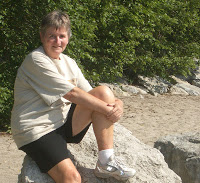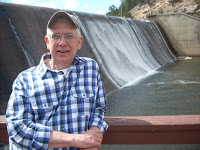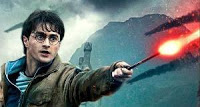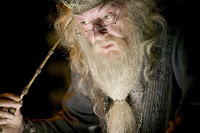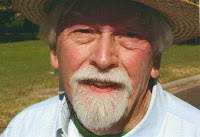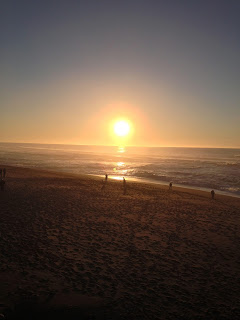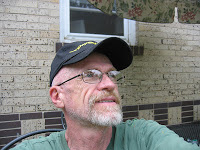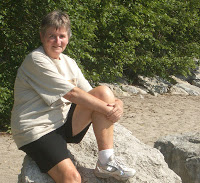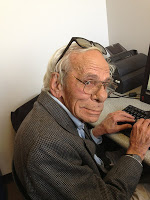I was driving north on Wadsworth, probably somewhere about 80th street. It was April 10th 1967. I was working swing shift at IBM’s new facility located between Boulder and Longmont. I lived in Lakewood on 32nd street so it was a long commute, but I enjoyed the drive through what was mostly, at that time, still peaceful farming country. Suddenly my car fell victim to some very strange vibrations. It shook. It bounced. The steering wheel wrenched free of my grip. Shit, I thought, I must have a flat. Now I would be late for work. I regained control of the wheel, breaking hard, and pulled the car off onto the shoulder where I came to a stop and turned off the engine. Strangely, the car still seemed to be shaking. Or maybe it was I who was shaking. I stepped out onto the road, immediately loosing my footing and almost falling. What was the matter with me?
With one hand on the car, I gingerly walked around it, still feeling very wobbly on my feet. No flat tire. At the same time, I was gradually realizing that I was not alone in pulling over. Other vehicles, both ahead of and behind me, had also stopped. Other drivers were standing beside their cars looking confused and puzzled. Then I saw it was the same story across the street; southbound traffic had also come to a standstill.
An older man and woman leaned warily against a pick-up a few feet from me. They peered questioningly at me, he from under a big, battered, cowboy hat.
‘What in Hell was that?’ he asked, querulously.
I shrugged, helpless.
‘I never felt nothin’ like that before,’ offered a young man sitting coiled astride his motorcycle as if ready to spring off at the first signs of any further misbehavior.
‘I’d guess it had to be an earthquake,’ offered a woman, pointing meaningfully to the California license plate on her bumper. I have experience with such things, she implied.
We all digested that in silence, pondering, but we don’t have those here, do we?
Slowly, we all returned to our vehicles and went unsurely on our way.
In August of that same year, I was once more heading north on Wadsworth, this time in the half-light of early morning as I was by then working the day shift. Suddenly my car fell victim to some very strange vibrations. It shook. It bounced. The steering wheel wrenched free of my grip.
Shit, I thought, I must have a flat. But just as quickly followed another thought. Oh no you don’t, you don’t fool me twice like that – fool me once, etcetera – this is another bloody earthquake.
As I, and other drivers, hurriedly pulled off the road, I could see myself as that California woman: experienced, blasé. But I rather fell down on sophistication by checking out the tires anyway, immediately I was out of the car. No flat. I was too slow off the mark, anyhow, to impress anybody.
‘Another goddamn earthquake,’ grumbled a voice.
‘Guess so,’ agreed another.
With world-weary shrugs we drove off.
The quake of April 10th was determined to be a magnitude 5.0. The second one I experienced later that year, the strongest ever felt in Denver, was 5.3. These two were the strongest of a whole series of relatively minor quakes over several years; The Colorado School of Mines recorded more than 300 earthquakes here in 1967 alone. This unexpected surge in earthquake activity was determined by the USGS to have been induced by pumping waste fluids into a deep disposal well at Rocky Mountain Arsenal, and as a result this practice was discontinued.
Those were, indeed, strange vibrations. Mercifully they remained relatively small and no major damage resulted. But the population of the entire Denver Metro area at that time was at most 800,000. Now it is three million. If the current crowded high-speed highways shook now as they did then, it is hard to imagine there would not be many multi-car pileups.
Alas, however, we don’t seem to have learned a thing from the Rocky Mountain Arsenal saga.
Fracking results in the same kind of fluid injection deep below the surface, many areas involved in fracking operations are suffering incredibly large numbers of small quakes and yet we refuse to accept any possible cause and effect here. Oklahoma, as if that poor state didn’t suffer enough from tornadoes, is a case in point. In 2009 there were 20 earthquakes recorded in Oklahoma measuring 3.0 and above. Since then, as fracking continues, the number has risen steadily to a count of 890 in 2015. As William Yardley, a reporter for the LA Times put it* –
‘Yet even as many anxious Oklahomans now track seismic data on their smartphones and struggle to sleep through the long, rumbling nights, there has been one notable location where people rarely seemed rattled. That is here, in the state capital, where the oil industry holds so much sway that for decades drill rigs have extracted crude from directly beneath the Capitol building.’
[To view the statistics, go to http://www.latimes.com/nation/la-na-sej-oklahoma-quakes-fracking-20160302-story.html ]
The famed Erin Brockovich is now deeply involved, and the Sierra Club is suing energy companies involved in fracking, but legal wheels grind slowly and many fear that it will all be too little too late. These numerous small quakes, especially in areas where there are already large faults, may lead to ever larger ones and eventually to a seriously damaging quake. Well, duh! I’m not a geologist, but that seems pretty elementary to me, even if we don’t have statistics to prove it.
My sincerest hope is that the legislators, if not the energy companies themselves, will pay attention to the abundant messages being sent by these countless strange vibrations, before we end up with very big vibrations which no-one will be able to ignore. The Beach Boys once sang heartily and happily about good vibrations and excitations. Alas, I fear nobody will sing, or be happy, about these vibrations; and the excitations are liable to be much too exciting.
About the Author
I was born and raised in England. After graduation from college there, I moved to the U.S. and, having discovered Colorado, never left. I have lived in the Denver-Boulder area since 1965, working for 30 years at IBM. I married, raised four stepchildren, then got divorced after finally, in my forties, accepting myself as a lesbian. I have been with my wonderful partner Betsy for thirty years. We have been married since 2013.
